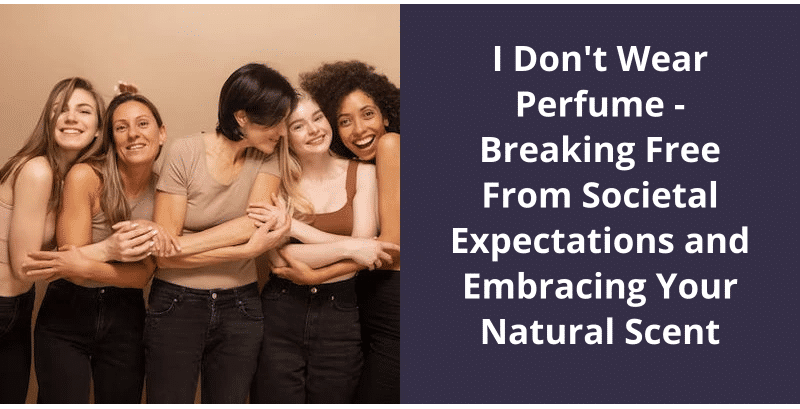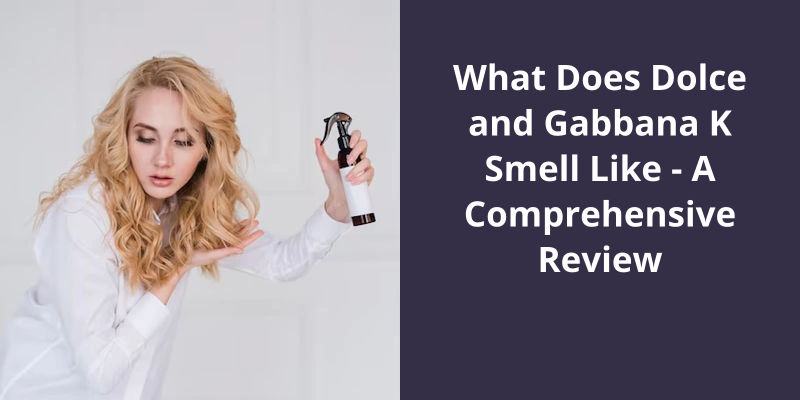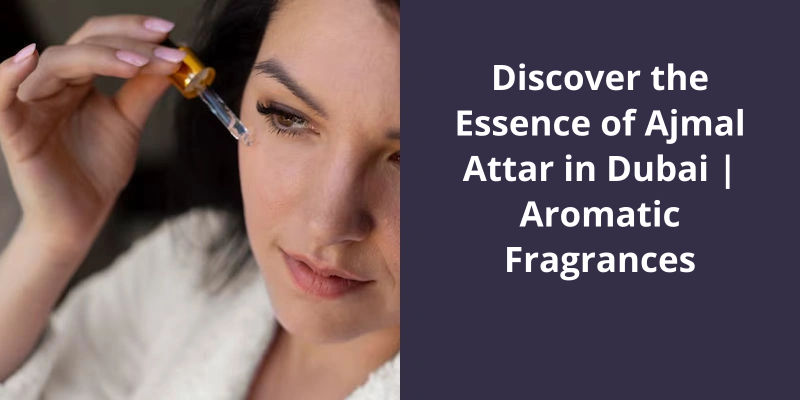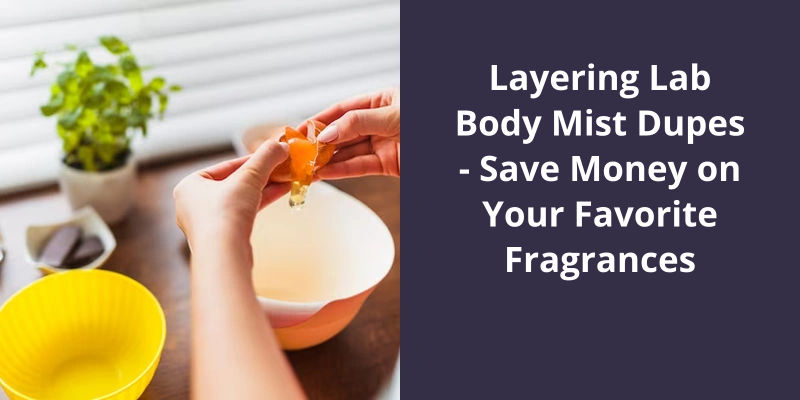It’s completely alright if you don’t wear perfume. Everyone has a natural scent or body odor that can be appealing without the addition of commercial perfumes. There should be no societal expectations pressuring you to wear a specific scent or any fragrance at all. It’s a personal preference and embracing your natural scent can be a form of self-acceptance and authenticity. It’s more crucial to maintain cleanliness, such as regular showers and using deodorant, to prevent offensive smells, but the choice to wear a perfume or cologne is up to each individual. Your scent, just like your personality, should represent who you are, naturally or enhanced.

Is It Necessary to Wear Perfume?
However, perfume can be a part of your personal style and can enhance your mood, confidence, and overall sense of well-being. Additionally, many people enjoy experimenting with different scents to match their moods or outfit choices.
On the other hand, some people may have allergies or sensitivities to certain fragrances, making it uncomfortable or even harmful for them to wear or be around perfume. In these cases, it’s important to be mindful of those around you and to choose fragrance-free options. It’s also worth noting that some professions may prohibit the wearing of strong or noticeable scents, for example in certain healthcare settings or workplaces where clients or customers may be sensitive to fragrances.
Ultimately, whether or not you choose to wear perfume is a personal choice that may depend on factors such as your lifestyle, preferences, and sensitivities. It’s also important to store your perfume properly, away from heat and light, to ensure it’s longevity and quality.
Furthermore, it’s worth remembering that fragrances aren’t just limited to perfumes. Many skincare products such as lotions and body washes contain fragrances that can add to your overall scent profile. Additionally, scented candles, diffusers, and room sprays can all add to the ambiance of your home or workspace.
At the end of the day, fragrance is just one small part of the complex and multifaceted world of personal style and self-expression.
The Art of “Layering” Fragrances to Create a Unique Scent Profile.
- Choose a dominant scent as your base
- Add a complementary scent to enhance the base
- Layer a contrasting scent for depth and complexity
- Apply sparingly to avoid overwhelming the senses
- Experiment with different combinations to find your signature scent
There’s nothing more frustrating than spritzing on your favorite perfume only to find that it fades away within minutes. If you’ve experienced this, you’re not alone. Many factors can affect the staying power of your fragrance, from diet and stress to dry skin and pregnancy. However, there’s a simple solution that can help your perfume last longer.
Why Does Perfume Not Stay With Me?
Perfume is often considered an essential part of ones attire. However, it can be very frustrating when it doesn’t seem to last on the skin. There are many reasons why this might happen, and some of them are beyond our control. Factors like a low-fat diet or stress can have a big impact on our bodys temperature, which can encourage the skin to throw off the scent. Similarly, spicy foods and fast foods can also raise body temperature, and over time, this can cause the scent to dissipate.
The condition of the skin can also have an impact on how long perfume lasts. When the skin is dry or irritated, it can be more difficult for fragrance molecules to adhere to the surface. This can cause the scent to fade more quickly than it should. Another factor that can affect the staying power of perfume is pregnancy. Hormonal changes during this time can make your skin more sensitive, and this can cause fragrance to dissipate faster than usual.
So what can we do to make our fragrance last longer? One solution is to put an emollient layer between the skin and the perfume. This can help to keep the fragrance molecules in place, and prevent them from evaporating too quickly. Emollients are substances that soften the skin and help to keep it hydrated. They can be found in many skin care products, such as moisturizers and lotions.
Another way to make your perfume last longer is to apply it to your clothes instead of your skin. Perfume molecules can cling to fabrics much better than to bare skin, so this can help to extend the life of your fragrance. However, be careful not to apply too much perfume to your clothes, as this can cause staining or damage.
Ultimately, finding the perfect perfume that suits your body and lifestyle is the key to smelling great all day long.
The Science Behind Perfume: How It Is Made and How It Works
- Perfume is made up of a mixture of fragrant essential oils, aroma compounds and solvents such as ethanol or water.
- The scent of perfume is created by the varying mixtures of top, middle and base notes.
- Top notes are the initial strong scents perceived upon application and are usually citrus or floral scents.
- Middle notes, also known as heart notes, are perceived after the top notes have evaporated and are usually spicy or fruity.
- Base notes are the longest lasting scents and are usually woody or musky.
- Perfume molecules bind to the olfactory receptors in the nose to produce a perceived scent.
- Perfume can also affect mood and emotions through a process called aromatherapy.
The power of scent goes beyond just making us smell good. It’s an impact on our mood, behavior, and even our memory. Perfumes have been around for centuries, and their popularity only continues to grow. In this article, we will explore the psychology behind perfume and uncover the reasons why we’re drawn to certain scents.
What Is the Psychology Behind Perfume?
Perfume is more than just a pleasant scent. It can evoke emotions, trigger memories, and even affect our behavior. The psychology behind perfume is complex and can be influenced by many factors, including our personal preferences and experiences. For example, we may associate certain scents with positive or negative experiences, which can impact how we feel when we smell them.
Certain scents may be associated with specific personality traits, such as confidence or sensuality. By choosing a perfume that aligns with our desired image or mood, we can use scent as a nonverbal form of communication.
Research has also shown that perfume can have a powerful impact on our mood and well-being. Studies have found that certain scents can reduce stress and anxiety, promote relaxation, and even improve cognitive function.
Different cultures may have different attitudes towards perfume and may associate certain scents with specific occasions or meanings. For example, in some cultures, certain scents are associated with religious or spiritual practices, while in others, they may be associated with romance or luxury.
The Science of How Smell Works and Why Certain Scents Evoke Specific Emotions
Smell is a complex sense that’s processed by the brain in order to produce an emotional response. Certain scents can trigger specific memories and feelings, causing emotional reactions. This is due to the connection between the olfactory system and the limbic system, which is responsible for memory and emotion. Scientists continue to study how smell works in order to gain a deeper understanding of it’s influence on human behavior and psychology.
Source: The Psychology Behind Wearing Perfume POPSUGAR Beauty
Given these reactions, it comes as no surprise that even with a massive array of options available today, people still shy away from using perfume in their daily routine. The perfume industry is massive, with a net worth of over $31 billion, yet a significant part of the population avoids using it. Let’s delve deeper into why people don’t use perfume and what alternatives they might have.
Why People Don T Use Perfume?
Elina Jerschow, MD, director of the Allergy and Asthma Center at Montefiore Medical Center in New York City.
Aside from allergies, some people simply don’t enjoy the scent of perfume. Personal preference plays a big role in what fragrances appeal to an individual. Some may find certain scents too overpowering or cloying. Others may not want to wear a fragrance because they don’t want to draw attention to themselves or they don’t like feeling like they’re wearing a mask.
Another factor that may deter people from using perfume is it’s cost. Quality perfume can be very expensive, and some people may not be willing or able to make the investment. Additionally, some people may simply not see the value in spending money on a luxury item like perfume.
Cultural and societal norms may also play a role in why some people choose not to wear perfume. In other settings, such as workplaces or schools, perfume may be discouraged or outright banned in order to prevent causing discomfort or allergies in others.
Perfume manufacturing involves a significant amount of energy, resources, and chemicals, and the end result is often packaged in plastic containers that end up in landfills. In an age where sustainability is becoming increasingly important to many people, perfume may be seen as an unnecessary and wasteful luxury.
The Potential Health Risks of Using Perfume: Beyond Allergies, Certain Ingredients in Perfume May Have Negative Effects on Individuals With Respiratory Conditions or Sensitive Skin.
- Perfumes may contain ingredients that can trigger respiratory problems such as asthma, bronchitis, and other lung conditions.
- Individuals with sensitive skin may experience rashes, itching, and redness when exposed to the chemicals in perfume.
- Certain chemicals in perfume have been linked to hormone disruption and even cancer.
- Long-term exposure to perfume can cause headaches, dizziness, and nausea.
- Fragrances in perfumes are often derived from petroleum, which can contribute to environmental pollution and harm wildlife.
However, one of her most famous statements about fragrance has continued to spark debate and curiosity with it’s bold claim. In this article, we’ll explore the woman behind the quote and dive into the reasons why someone might choose not to wear perfume.
Who Is the Woman Who Doesn’t Wear Perfume?
However, her statement about women without perfume has continued to capture the attention of many. Despite being over a century old, the quote still resonates with a certain demographic of women. The question is, just who’s this woman who doesn’t wear perfume?
One possible explanation is that she’s a woman who chooses not to conform to societal expectations of femininity. Perfume has long been associated with femininity and the idea that women should smell pleasant and pleasing to others. By not wearing perfume, this woman may be rejecting this expectation and asserting her individuality.
She may feel that perfume is an unnecessary luxury and prefers to focus on more important things. This could be seen as a form of rebellion against the consumerist culture that often promotes the idea of having more and more possessions.
Another explanation is that the woman who doesn’t wear perfume simply doesn’t like it. Perfume is a personal preference, and not everyone enjoys the scent of synthetic fragrances. For some, the smell of perfume can even cause headaches or other physical discomforts.
Ultimately, the woman who doesn’t wear perfume is likely as diverse and complex as any other woman. Her reasons for eschewing perfume may be varied and multifaceted. What’s important is that she’s allowed to make this choice without facing judgment or pressure to conform to societal expectations. As Coco Chanel herself said, “Fashion changes, but style endures.”
Now that we know the percentage of people who use perfumes and how much they’re willing to spend on them, let’s take a closer look at the reasons why perfumes are such an important part of people’s lives. From personal expression to creating a signature scent, we’ll explore the many facets of perfume and it’s significance.
What Percentage of People Use Perfumes?
Perfumes have become an integral part of human life, and they help define our personalities. It’s a fact that fragrances can do wonders to our mood and evoke memories or emotions. According to research, around 75% of people over the age of 15 wear fragrances. The percentage of consumers who use perfumes is very high, and it’s only increased over the years.
The impact of perfumes goes beyond the obvious scent. They’ve become a part of self-care and grooming routines, and it isn’t just limited to women. Men have also started using perfumes more than ever, which signifies the growing popularity of fragrances among consumers. In fact, mens perfume sales are growing, and they’re expected to reach $6.7 billion by 2022.
While a vast majority of people use perfumes, there’s a range of preferences when it comes to the price point. The data shows that 28% of consumers globally spend a medium amount on perfumes, followed by 18% who buy high-end/premium versions. The high-end perfume industry is prospering, and luxury brands are cashing in on it. Despite the higher cost, consumers are willing to pay a premium price for a unique fragrance and quality.
Another trend that’s driving perfume sales is customization. Consumers today crave personalized experiences, and fragrances are no exception. Many companies offer bespoke perfume services, which allow the customer to mix and match scents and create a unique fragrance that fits their preferences. This trend is particularly popular among millennials, who value exclusivity and uniqueness.
It’s safe to say that the use of perfumes is widespread, and the industry shows no signs of slowing down. As technology and innovation continue to advance, consumers can expect to see more exciting ways to experience fragrances.
Conclusion
While some people may choose to wear fragrance to enhance their sense of confidence and attractiveness, others may opt to go without it due to personal preference, health reasons, or environmental concerns. Ultimately, it’s important to respect each individual's decision when it comes to perfume and to recognize that there’s no one-size-fits-all approach to scent.





